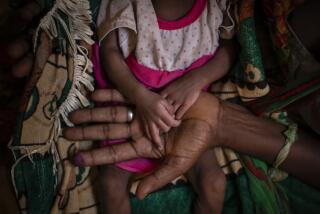We All Have a Duty to Help One Another
- Share via
Witnesses’ allegations that paparazzi stood by and snapped photos while Princess Diana and her companions were bleeding, injured and dying, rather than aiding the accident victims, have shocked the world and offended our deepest sense of decency.
If the photographers did so, they may be charged with violating France’s “Good Samaritan” law, requiring people to assist others in distress. Yet in the United States, there is no civil or criminal law requiring a bystander to come to the aid of another. If the accident had occurred in the United States, the paparazzi could not have been charged with violating any law as a result of photographing rather than assisting. If any good is to come of the Princess Diana tragedy and the depraved image of people trying to make a buck off of the dying, it should be a call to change American law to require each of us to render at least minimal assistance, where possible, to those at risk of suffering grievous injury or death.
For example, it is not too much to ask that we call the police or an ambulance when we come upon a major car accident with severely injured people. In that situation, a few minutes’ delay can be the difference between life and death.
The American “no duty to come to the aid of another” rule has been criticized by legal scholars, yet has generally been ignored by the public. It should insult our values to think that a healthy adult could come upon a baby drowning face down in an inch of water and walk right by when a mere nudge would save the baby’s life. Law students are taught that if someone is choking on a chicken bone in a restaurant, not only are other patrons not required to give the Heimlich maneuver, call an ambulance, or do CPR, but in fact the other patrons could, without violating any law, even dance around the gasping victim, singing, “Chicken bone! Chicken bone! Choking on a chicken bone!”
Under American law, liability generally exists for action, not inaction. We are each responsible for the harm we cause to others due to the lack of reasonable care. If my careless actions, however innocent, injure you, you have the right to sue me for your damages. Yet even if I maliciously, hatefully and with evil intent stand by and watch you die without giving simple assistance, there is no legal remedy. This is indecent, and should be changed. It is time to join with countries like France and insist that there be legal consequences for turning one’s back on someone in desperate need.
Why do so many people ignore the needs of accident and crime victims? Rationalizations range from fear that getting involved will be unduly time consuming or cause personal injury to the Good Samaritan, to doubts as to what to do in a crisis. While the untrained should not attempt medical assistance, it takes so little time and effort to phone paramedics. In a case we have brought before the California Court of Appeals, we argue that family members of a convicted pedophile who knew the pedophile was spending time with a child in violation of his parole and failed to warn the child’s mother of his status as a sexual predator should have had a legal duty to utter a few words to protect the child from sexual abuse.
The real reason people don’t reach out is because they feel disconnected from strangers in need. Yet the child at risk, the injured motorist, the choking restaurant patron could be any one of us or our loved ones. If each of us recognized a moral responsibility to come to the aid of others, we would all gain the benefits of a stronger and safer community.
More to Read
Sign up for Essential California
The most important California stories and recommendations in your inbox every morning.
You may occasionally receive promotional content from the Los Angeles Times.










